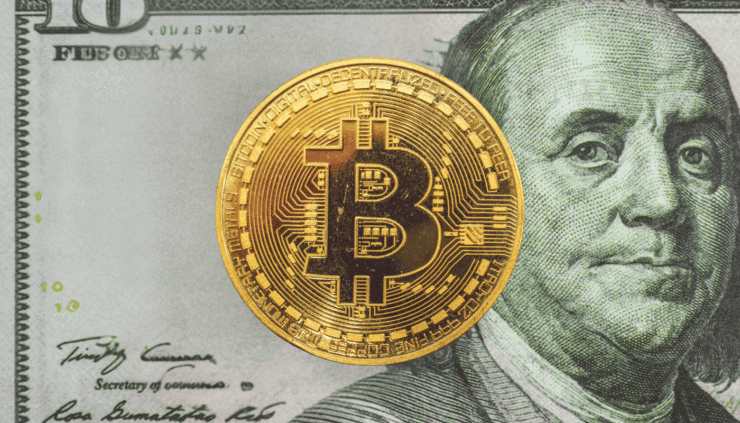Bitwise CEO Hunter Horsley believes Bitcoin’s ultimate competitor isn’t just gold—it’s the entire $30 trillion U.S. Treasury market. In a post shared Friday, Horsley argued that Bitcoin’s total addressable market extends beyond the $16 trillion gold sector, encompassing U.S. Treasuries held by institutions and individuals as a store of value.
This bold perspective positions Bitcoin as a rising alternative to government-backed debt, especially in an era of eroding confidence in fiat reserves. Horsley’s remarks followed economist Mohamed El-Erian’s warning that Treasuries no longer offer a clear signal of investor safety. El-Erian noted that capital is now shifting into alternative hedges like gold and silver.
Horsley contends that Bitcoin’s structural traits—finite supply, decentralized governance, and insulation from sovereign risk—make it uniquely qualified as a savings vehicle for the digital age. As inflation, geopolitical tension, and debt concerns mount, Bitcoin is being reevaluated by institutions as more than just speculative—it’s becoming foundational.
This macroeconomic narrative is gaining traction. With global investors growing wary of aggressive fiscal policy and over-leveraged economies, Bitcoin’s reputation as a modern reserve asset is rising. Its resilience during debt ceiling crises and fiat instability is reinforcing the perception of Bitcoin as digital gold.
Debt, Inflation, and Bitcoin’s Safety Appeal
Mounting global instability and unchecked government spending are fueling Bitcoin’s rise as a preferred store of value, with many investors fleeing traditional assets weighed down by inflation and political risk.
In the U.S., President Trump’s proposed “Big Beautiful Bill” could add $2.5 trillion to the deficit, pushing the already staggering national debt—now at $37 trillion—even higher. Though pitched as a pro-growth initiative, critics call it fiscally reckless. Even Elon Musk, formerly jokingly dubbed head of the Department of Government Efficiency (DOGE), has raised alarms about the country’s financial trajectory.
In April 2025, skepticism over U.S. fiscal health sparked a broad bond sell-off, sending yields surging. Investors demanded higher returns for holding what’s increasingly seen as risky government debt—not due to short-term panic, but long-term doubt in solvency.
Bitcoin, in contrast, stands apart. As a decentralized, fixed-supply asset, it shields holders from inflation and centralized monetary mismanagement. The appeal is shifting from yield-seeking to sovereignty-seeking—investors want protection from policy errors as much as from market volatility.
The shift is accelerating with each new political crisis or fiscal misstep. From trade tensions to runaway debt, Bitcoin is solidifying its role as a modern hedge, rivaling both gold and Treasuries. For many, it offers an exit from what they see as a crumbling fiat system.
Quick Facts
- Bitwise CEO says Bitcoin’s market rivals U.S. Treasuries.
- Treasuries hold $30T globally—BTC seen as a rising alternative.
- El-Erian warns Treasuries are no longer a safety signal.
- Trump’s “Big Beautiful Bill” may add $2.5T to national debt.
- April bond sell-off sparked by long-term fiscal concerns.





